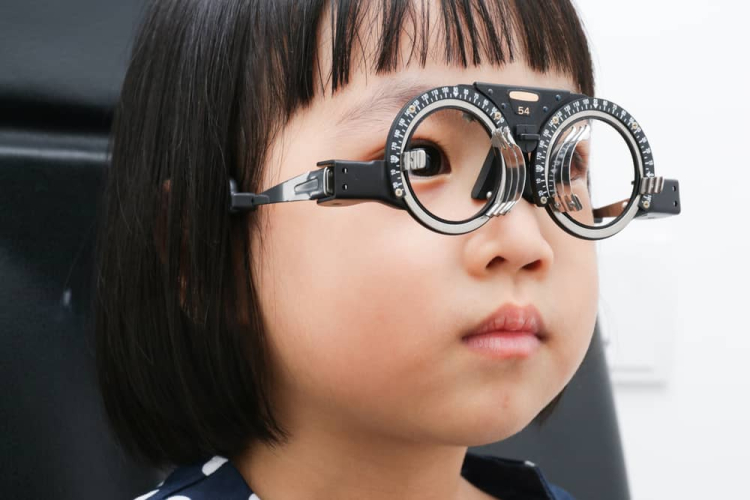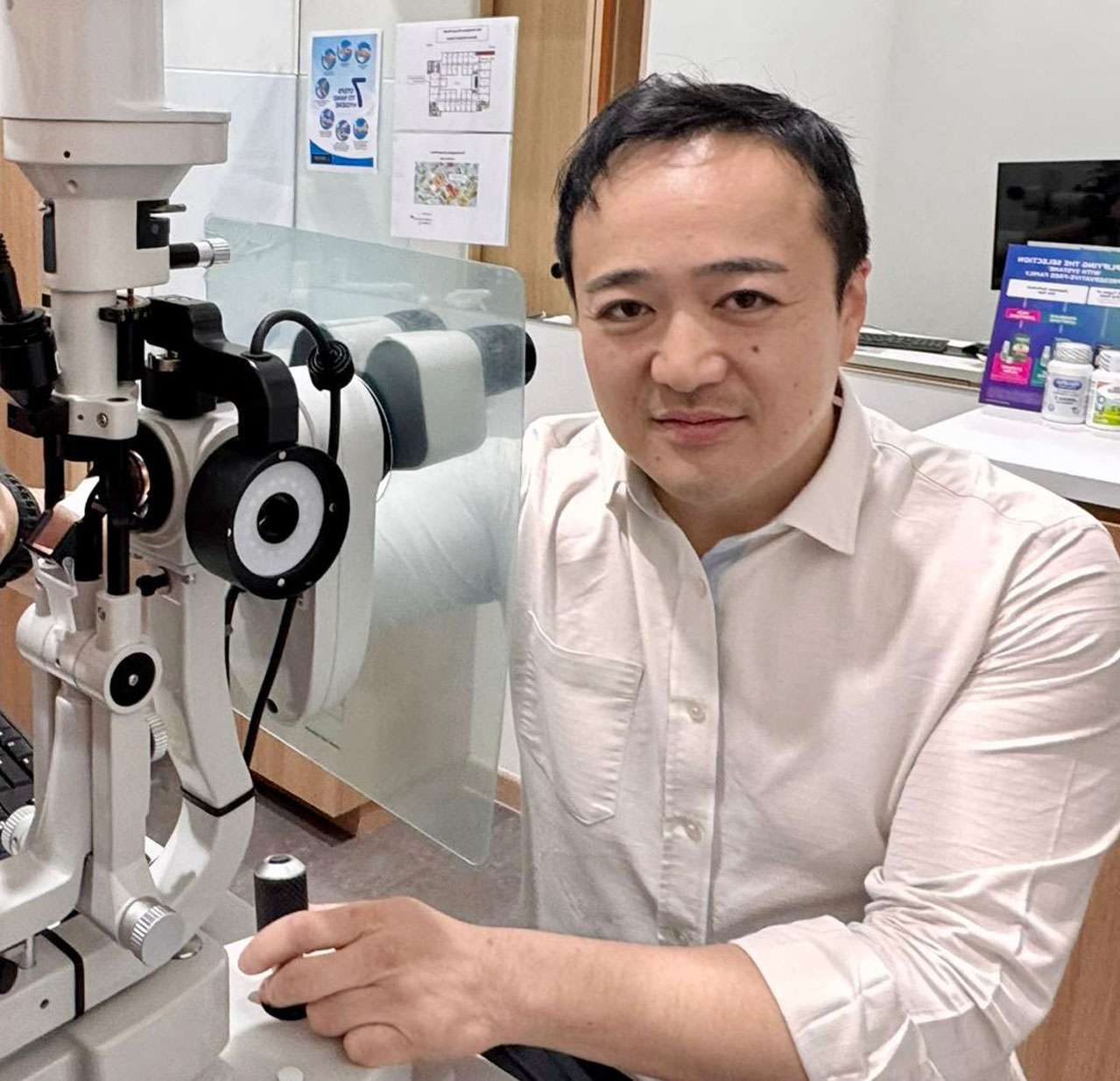When Blurry Vision Affects Both Near and Far
Astigmatism is a common refractive error that affects how your child’s eyes focus light. It can cause blurred or distorted vision at any distance, and may occur on its own or alongside other conditions like myopia (short-sightedness) or hyperopia (farsightedness).
At London Eye & Retina, we believe in identifying vision concerns early. With timely diagnosis and proper visual correction, children with astigmatism can see clearly and thrive both in and out of the classroom.
What Is Astigmatism?
In an eye with normal vision, the cornea (the front surface of the eye) is evenly curved, like a basketball. In astigmatism, the cornea is shaped more like a rugby ball, curved more in one direction than the other.
This uneven curvature causes light rays to focus at multiple points in the eye instead of a single sharp focus on the retina, leading to blurred or distorted vision.
Astigmatism can affect one or both eyes, and it may be present from birth or develop during childhood.
What Causes Astigmatism in Children?
Astigmatism may be:
- Hereditary – it often runs in families
- Present at birth (congenital)
- Associated with eye rubbing (especially in allergic eye conditions)
- Related to other refractive errors like myopia or hyperopia
- Occasionally linked to corneal conditions like keratoconus (though rare in children)
In most cases, the exact cause is not due to any disease, it’s simply the way the eye has developed.
What Are the Signs?
Children with astigmatism may not always know their vision is blurred, especially if it has always been that way. Signs to look for include:
- Squinting to see clearly
- Complaints of blurry or fuzzy vision, both near and far
- Difficulty seeing the board at school
- Eye strain or headaches, especially after reading or screen use
- Holding books too close or too far away
- Poor handwriting or reluctance to read
- Blinking frequently or rubbing eyes
Teachers often notice the effects of astigmatism in the classroom before parents do.
Why Is Early Detection Important?
If left uncorrected, moderate to high astigmatism in children can lead to amblyopia (lazy eye), where the brain “turns off” input from the blurrier eye, resulting in long-term vision loss.
Early correction is key to ensuring proper visual development, coordination, and academic performance.
How Is Astigmatism Diagnosed?
At London Eye & Retina, our paediatric eye assessments include:
- Visual acuity testing for near and distance
- Refraction testing (often with eye drops to relax focusing)
- Slit-lamp examination to check the health of the cornea and lens
- Eye alignment and binocular vision checks
- Corneal topography in selected cases, to map the surface of the cornea
These tests are safe, child-friendly, and allow us to make an accurate diagnosis, even in non-verbal or very young children.
How Is Astigmatism Treated?
The most common treatment is corrective lenses, which help redirect light properly onto the retina:
- Prescription glasses with cylindrical correction
- Toric contact lenses (for older children who are ready for lens wear)
- Monitoring and patching if amblyopia is present
In rare or complex cases, further investigation may be required, especially if there is suspicion of irregular astigmatism or a structural eye condition.
Helping Your Child See Their Best
Astigmatism can affect how your child reads, learns, and plays. With the right correction and support, most children adjust quickly and enjoy clear, comfortable vision.
We’ll guide you through every step, from diagnosis to choosing the right lenses and follow-up care.
Book a Children's Vision Screening Today
If your child is struggling to see clearly or has never had a full eye exam, now is a good time to check for astigmatism or other refractive issues.
Book a consultation at London Eye & Retina for a complete paediatric eye assessment by our experienced team.
Clearer Sight for Brighter Learning


